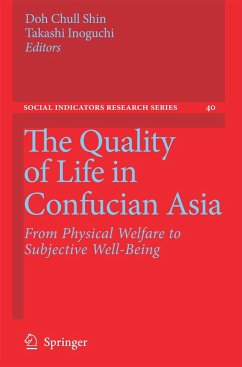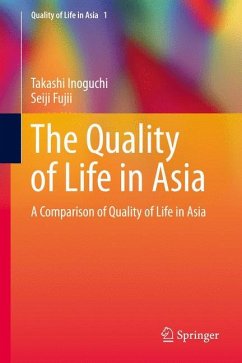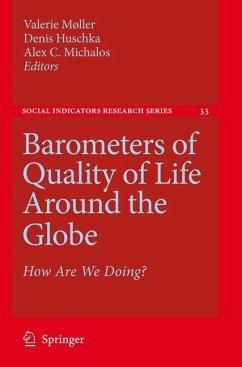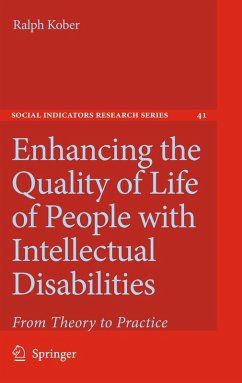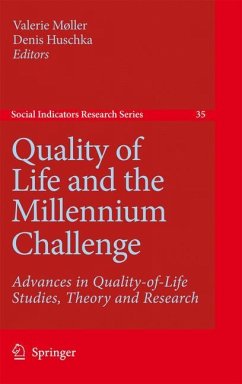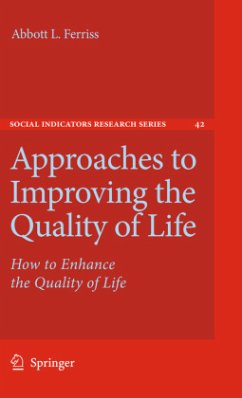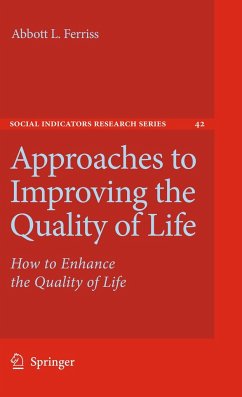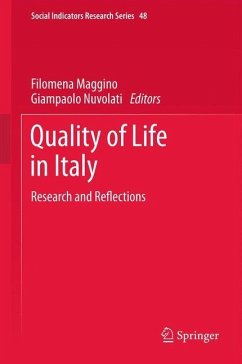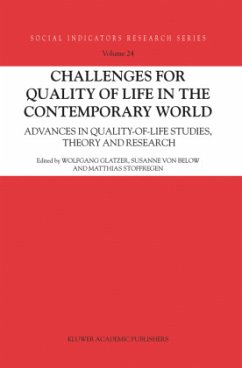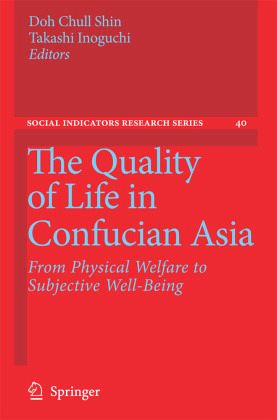
The Quality of Life in Confucian Asia
From Physical Welfare to Subjective Well-Being
Herausgegeben: Shin, Doh Chull; Inoguchi, Takashi
Versandkostenfrei!
Versandfertig in 6-10 Tagen
76,99 €
inkl. MwSt.

PAYBACK Punkte
38 °P sammeln!
For the past three decades, Confucian Asia has been known as a region of wonders. More successfully than any other region in the world, it has expanded its national economies, and integrated those into the global economy. To the rest of the world, this region offers the lesson that poor countries, even with limited natural resources, can achieve rapid economic development and social modernization. To this day, policymakers and scholars have focused on the question of why Confucian Asia has prospered, while other regions have not. Consequently, little is known about how such economic expansion ...
For the past three decades, Confucian Asia has been known as a region of wonders. More successfully than any other region in the world, it has expanded its national economies, and integrated those into the global economy. To the rest of the world, this region offers the lesson that poor countries, even with limited natural resources, can achieve rapid economic development and social modernization. To this day, policymakers and scholars have focused on the question of why Confucian Asia has prospered, while other regions have not. Consequently, little is known about how such economic expansion and globalization have affected the quality of citizens' lives in the region. This volume, with quality of life in Confucian Asia as its main theme, is the first of its kind seeking to unravel the dynamics and sources of citizen well-being, and to analyze the problems of building nations of well-being in this region.





